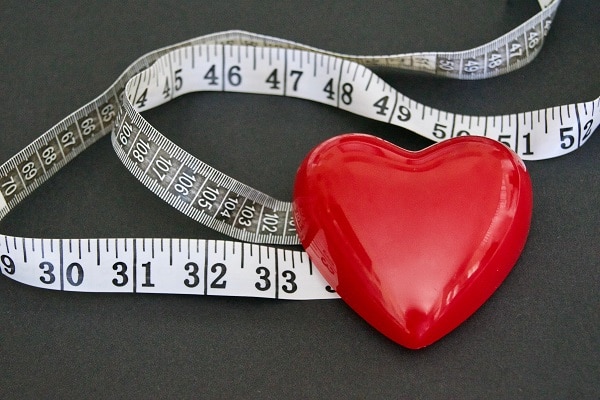It’s not a bold statement to say that good vision is essential at any age. However, your eyesight naturally starts to decline as you get older, which can lead to several problems. This article will discuss tips on maintaining good vision as you age. We will also discuss the different types of vision problems seniors often experience. If you want to keep your vision healthy for years to come, make sure to read this post!
Contents
Common Vision Problems In Seniors
Regardless of how old you are right now, it’s never too early to start thinking about your vision and how to protect it. The first step is being aware of problems that could arise. As you age, your risk for developing certain eye diseases and conditions increases. Some of the most common vision problems that seniors experience include:
Age-Related Macular Degeneration (AMD)

Age-related macular degeneration (AMD) is a progressive eye condition that affects central vision. It is the leading cause of blindness in adults over 50. AMD occurs when the macula, the small area of the retina responsible for central vision, begins to break down. This can cause a gradual loss of sharpness and clarity in vision.
There are two main types of AMD: dry AMD and wet AMD. Dry AMD is the most common form of the condition, progressing slowly. Wet AMD is less common but more severe and can lead to rapid vision loss. In some cases, AMD can also lead to complete blindness. There are treatments available for both forms of AMD, but there is no cure.
Cataract

A cataract is a clouding of the lens in the eye, which leads to a decrease in vision. Cataracts are very common in older people. By age 80, more than half of all Americans either have a cataract or have had cataract surgery. A cataract can occur in either or both eyes. It cannot spread from one eye to the other.
Most cataracts develop slowly and don’t disturb your eyesight early on. As they progress, they may cause more blurry vision. You may also have difficulty seeing at night. In addition, you may experience double vision in one eye. You may also see “halos” around lights, and colors may not seem as bright as they once did. Unfortunately, a cataract can eventually cause blindness if it’s not removed.
Diabetic Retinopathy

Diabetic Retinopathy is a serious complication of diabetes that damages the retina, the light-sensitive tissue at the back of the eye. It is the leading cause of blindness in adults ages 20-74. Diabetic Retinopathy occurs when high blood sugar levels cause changes in the retina’s small blood vessels. These changes may leak fluid or cause the vessels to swell and block vision. In some cases, new abnormal blood vessels grow on the retina.
These new vessels are very fragile and can bleed, causing vision loss. Diabetic Retinopathy usually develops slowly and has no early symptoms. That’s why people with diabetes need to have regular eye exams. If Diabetic Retinopathy is caught early, vision loss can be prevented or delayed with timely treatment.
Glaucoma

Glaucoma is a condition that results in damage to the optic nerve. The optic nerve is responsible for carrying visual information from the eye to the brain. When it is damaged, vision is impaired. Glaucoma is often caused by abnormally high pressure in the eye. This pressure can damage the optic nerve, leading to vision loss. There are two main types of glaucoma: open-angle glaucoma and angle-closure glaucoma.
Open-angle glaucoma is the most common type, and it develops slowly. Angle-closure glaucoma is less common but it can be more serious because it can lead to a sudden rise in eye pressure. If left untreated, glaucoma can cause blindness. Fortunately, early detection and treatment can help to prevent vision loss. Regular eye exams are essential for people at risk for glaucomas, such as those over 60 or those with a family history of the condition.
Tips For Maintaining Good Vision As You Age
While some vision problems are inevitable as you age, you can take steps to protect your eyesight. Here are some tips for maintaining good vision as you age:
Eat A Healthy Diet

A healthy diet is important for maintaining good eye health. Foods rich in antioxidants, such as vitamin C, can help protect the eyes from damage caused by free radicals. Vitamin A is also essential for vision, and foods such as carrots and sweet potatoes are good sources of this nutrient.
In addition, omega-3 fatty acids play a role in preventing dry eye syndrome and other eye problems. Good sources of omega-3s include fatty fish such as salmon and tuna. Including these and other healthy foods in your diet can help keep your eyes healthy and prevent vision problems.
Keep Your Blood Pressure Under Control

Good eye health depends on many factors, including maintaining healthy blood pressure levels. When blood pressure is too high, it can damage the blood vessels in the retina, the sensitive tissue at the back of the eye responsible for sending visual signals to the brain. High blood pressure can also lead to glaucoma, a condition in which fluid buildup in the eye increases pressure on the optic nerve, potentially causing vision loss.
Fortunately, there are steps that people with high blood pressure can take to protect their eyesight. In addition to taking medication as prescribed and managing stress levels, eating a healthy diet and exercising regularly is important. By taking these measures, people with high blood pressure can help to keep their eye health from deteriorating.
Stop Smoking

Smoking is one of the leading causes of preventable blindness. Smoking is well-known to be detrimental to health, but many people are unaware of its toll on their eyesight. Cigarette smoke contains a variety of toxins that can damage the eyes, including nicotine and carbon monoxide. These substances interfere with the blood supply to the eyes, leading to a loss of vision.
Quitting smoking is one of the best things you can do for your eye health. You will reduce your risk for vision problems and enjoy a host of other benefits, including improved heart health and lung function. Also, smokers are at an increased risk of developing cataracts and age-related macular degeneration. So, quitting smoking should be at the top of your list if you’re looking to protect your eyesight.
Protect Your Eyes

Your eyes are one of the most important organs in your body, so taking care of them is important. Here are a few tips on protecting your eyes and maintaining your eye health. One way to protect your eyes is to wear sunglasses outdoors. Sunglasses help filter out harmful UV rays from the sun, damaging your eyesight over time. Make sure to choose a pair of sunglasses that blocks at least 99% UV rays.
Another way to protect your eyes is to wear protective eyewear when participating in certain activities. For example, if you’re working with power tools or chemicals, wear safety glasses or goggles to protect your eyes from debris or chemicals.
Lastly, it’s important to get regular eye exams. Eye exams can help to detect vision problems early on, so you can get treatment before your vision deteriorates further. If you have a family history of eye problems, get an eye exam at least once a year. Taking these steps can help protect your eyes and maintain your eye health.
Take Steps To Maintain Good Vision As You Age!
There are many things that you can do to protect your eyesight and keep your eyes healthy as you age. And while this list covers some of the most essential things you should do, it is by no means exhaustive. So if you want to keep your eyes healthy, take care of them and see an eye doctor regularly. With a little effort, you can help ensure that your vision will stay sharp for years to come.


